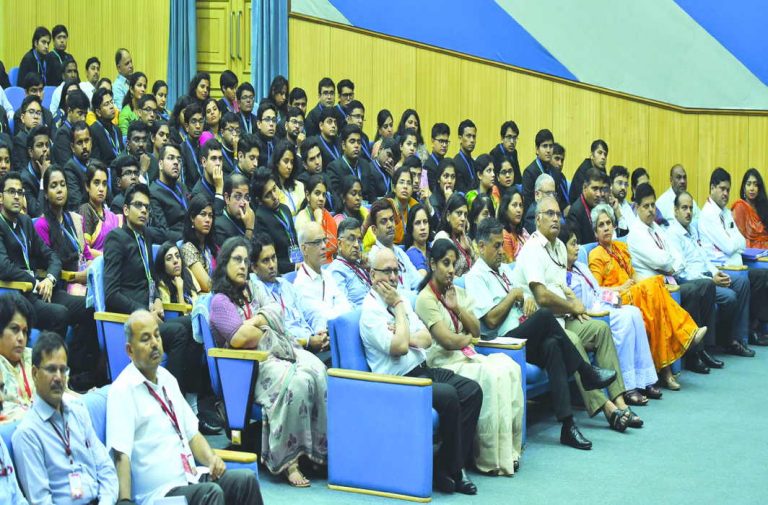
The Supreme Court on Friday modified the Delhi HC order that had quashed the 2018 IAS/IPS cadre allocation and granted 19 aggrieved candidates the liberty to choose cadre by marking their preferences even as it ruled that the original allocation is not to be disturbed.
The order by apex court is a win-win situation for Centre and as well as 19 candidates who had challenged the cadre allocation. “The order stands modified to the extent needed. This is treated to be an exceptional case and not to be treated as a precedent in future issues,” the bench of Justices Indira Banerjee and Sanjiv Khanna said.
At today’s hearing, Solicitor General (SG) Tushar Mehta said that only 19 candidates have problem with the cadre allocation. To which the bench said: “The High Court’s finding is that the language of the circular is ambiguous.”SG said: “Only 19 candidates have not understood but all others have understood. If we start resolving it we have change the cadre of every candidate.”
Counsel for Union home ministry said: “Since there was a perception that the most of the creamy of creamy categories were given the best allocation, the government of India divided the whole country into 5 zones. Very few people want to go to zone four which comprises of west Bengal and the north eastern states. The candidates have to select their most preferred zone, second, third, fourth and fifth.”
Bench said: “Region specific training has not started so we can go back.”
At this, Mehta interjected: “The local training has been completed and the local language has been taught and training regarding the same is complete. If IPS and IAS officers do not understand the central government’s policy then on that ground they should be disqualified. The policy is made for the officers not for children.”
He further added: “The 18 petitioners who had approached the high court (one had withdrawn) and two petitioners who had approached the CAT shall be accommodated by increasing 1 post in respective state cadre which shall be adjusted in respective next year.”
The bench said: “In view of the aforesaid suggestion which we accept we deem it appropriate to dispose of this writ petition by keeping the question of law open.”
The matter had come up for urgent listing before a bench comprising Justices Indira Banerjee and Sanjiv Khanna on Monday. It was put to the bench by Mehta who told the bench that those selected in 2018 batch have undergone training and were supposed to start joining their respective cadres from May 10.
The Delhi High Court had quashed the Centre’s cadre allocations with a bench accepted the submission of the officers who had approached the court challenging the process, that cadre allocation is a matter which would affect their careers for all times to come. It noted that re-allocation of cadres by the authorities should not take much time as it is done electronically, that is through computer programme or software, and the authorities already possess the requisite data in this regard.
It said the court was inclined to grant relief to the petitioners considering that they have approached the court at the very earliest and at a stage when neither the IAS officers nor the IPS officers of the 2018 batch have commenced their on-site training which are cadre specific.
The Delhi HC verdict came on four petitions filed by various officers challenging the notification of Central government allocating cadres to candidates of Indian Police Service (IPS) on the basis of results of the Civil Services Examination (CSE), 2017.
The petitioners said in the plea that the interpretation and implementation of the Cadre Allocation Policy-2017 is unreasonable as the more meritorious candidates have been denied the allocation of cadre.
Delhi HC had agreed to the petitioners’ contentions that the Cadre Allocation Policy-2017 was unreasonable and needed resurrection.
The HC observed in the judgment: “We agree with the petitioners that the interpretation and implementation of the Cadre Allocation Policy – 2017 resorted to by the respondents (Centre) is unreasonable and arbitrary since the more meritorious candidates have been denied the cadres to which they were otherwise entitled to according to their preference, and the same have been allocated to the less meritorious candidates… We, therefore, direct the respondents (Centre) to undertake fresh cadre allocation of the successful candidates allocated to the IAS and IPS, according to their merit and by taking into consideration the preferences given by the candidate.”
The Department of Personnel and Training (DoPT) had amended the earlier roster-based system of cadre allocation policy in 2017 to make it a zone-based policy. According to the government, the move was to ensure that they do not turn into regional services because an increasing number of officers were opting for cadres in their home states or neighboring states. The Delhi HC order said that cadres for IAS and IPS officers of the 2018 batch should be re-allocated based on merit and preferences highlighted by them. If the SC stays the HC order, the training and preparation schedule of 2018 batch officers would continue.
—India Legal Bureau

